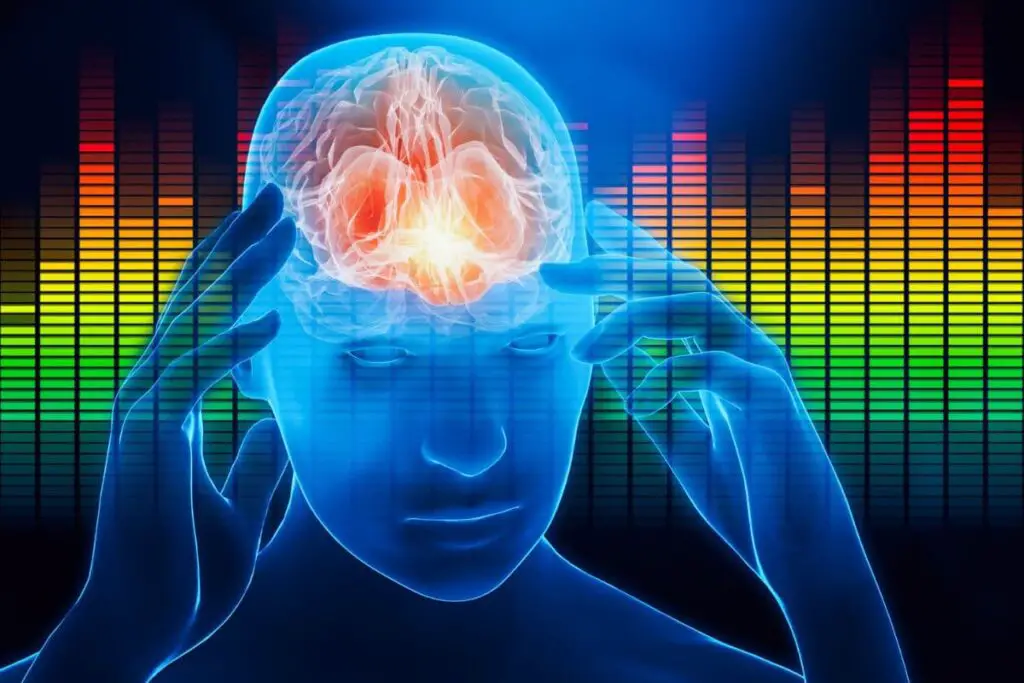|
Getting your Trinity Audio player ready...
|
Many people use music to escape life’s trials and tribulations and tap into their emotions. Scientifically best music for studying has a powerful and therapeutic effect on brain activity and the body. This has been backed up by numerous scientific studies conducted worldwide.
Turning on the tunes is an excellent way to balance emotions and release pressure before and during a study session.
The scientifically best music for studying is music that is relaxing yet energising. Listening to music you enjoy increases concentration, understanding, and mood while studying. It is best to avoid loud and wordy music, because it interupts concentration.
If you’ve tried listening to music while studying and found it distracting, you may have heard the wrong tunes. This article explores the scientifically best music for studying and how music affects brain function.

Music and the Brain
Music
There is a long history of music bringing joy to people of different cultures worldwide for centuries. Sometimes it is easy to forget its importance and the effect music has on our daily lives, often without us realising.
The Brain
The brain is an exceptional body part that is still not fully understood. Experts are continually studying to learn more about its function, capabilities, and what sparks specific activity within the brain.
When you play music, vibrations flow into your ear canal to your eardrum. From there, information travels through the auditory nerve to your brain stem. The data is then processed, and your brain perceives it as music.
As your brain processes the notes, it provokes changes in brain activity and even heightens function.
For a long time, scientists have been intrigued by how music affects the brain, but studies slowed down in the mid-1900s. They have recently increased, and scientific evidence supports the benefit music can have on your overall well-being.
How Music Affects Brainwaves
As Stanford News from Stanford University mentioned, scientific evidence states music and other rhythmic stimuli can alter mental states. And it can even heal those suffering from brain damage.

By utilising electroencephalography (EEGs), neuroscientists can see brain activity through brainwaves and how it’s affected by music and rhythmic stimuli. The evidence found that brainwaves fall in form with the beat of the music.
Slow beats can cause a hypnotic or meditative state, while faster beats can encourage alertness and concentration.
Medical professionals sometimes use music and rhythmic stimuli to treat people with anxiety, depression, and attention deficit disorder (ADD), among other medical conditions.
Does Music Improve Visual-Spatial Abilities?
A study conducted in the UK involved the effects music had on over 8,000 children (10 to 11 years of age) with cognitive function. The researchers gave the children 10 minutes to listen to music and tested their visual-spatial ability. They gave some children Mozart, and others listened to music from a Rock band that was popular with the young.
The results showed that the kids listening to music they liked (the Rock band) outperformed those who listened to Mozart during the test. This evidence highlights that the more aligned the music is to your taste—the better your cognitive performance is likely to be.
What’s the Best Music for Studying?
People have long claimed that classical, or even baroque, is the best music to listen to while studying.

However, studies have revealed it’s more the emotions enjoyable music provokes that spikes beneficial brain activity. So, while some may greatly benefit from listening to classical or baroque while they study, others may not.
Music tastes differ from person to person, and listening to something you don’t like can be counterproductive. When trying to gain an intellectual boost while learning and retaining information, you’ll need to set the mood with the right tunes.
The scientifically best music to listen to is a set of tunes that will boost your mood and get you in the zone for learning.
Your brain and body will tell you if they are over or understimulated by the music you’re feeding them. You may find it challenging to concentrate and become frustrated or you may be motivated. You will know instinctively.
So, you’ll want to find the right tunes to benefit brain functions like focus, comprehension, and motivation.
Test the Waters with Different Study Music
Listen to your body when choosing music to study because, as previously mentioned, not everyone reacts the same way.
The scientifically best music to listen to is the kind that gets you motivated and in the mood for learning, and retaining your study material.
So, shuffle through your music until you notice that boost and feel the creativity come into action.
Also, try branching into unknown territory with different music styles and genres. You may be surprised at what your brain enjoys listening to while learning.
Try listening to slightly upbeat music with natural sounds in the background, as it’s soothing but keeps the tempo so you won’t fall asleep. This option is especially true if you’re someone who thrives on nature, by being involved in outdoor activities and adventures.
Background Music Gives Your Brain a Workout
Music is a powerful tool you should be utilising while studying. While listening to music while studying can have its downfalls, when you have the right music playing in the background, you’ll be amazed at the positive impact it has during your study crunch time.
Music can affect people with common health issues in a positive way. It may be blood pressure, sleep, or stress. But there are many other benefits music provides for your brain and body.
The following are proven intellectual improvements as a result of listening to music during your learning sessions:
- Concentration and focus
- Motivation
- Mood
- Productivity and efficiency
- Creativity
- Comprehension and retention
- Memory
And when you can optimise your brain’s abilities while learning, you’ll have more confidence when you finally sit down to complete your exams. Your brain will be ready and wired to focus on recalling all of the literature you’ve studied.
Music Can Also Relieve Anxiety—Aiding Study
We all know how stressful studying can be, or the anxiety testing can bring on. Those two emotions can be crippling when trying to crunch in some learning time to ace the next test. When tensions are high, the best thing you can do is slow down, take a deep breath, and turn on the music.
Music can help eliminate negative emotions, like stress and anxiety, that can build up and hinder your cognitive abilities. You will have a more challenging time focusing and understanding what you’re reading when you’re stressed or have high anxiety. Your memory also suffers because these negative emotions create chaotic activity in your brain.
When your brain is in chaos, it can’t process and retain information.
Now, you shouldn’t jump up to turn on the tunes just yet because, as I said, there is also a downside to having music playing in the background during your study sessions.
What You Should Avoid When Choosing Study Music
Even if you listen to your favorite bands, it may not help you focus to understand what you are studying. Music can be both beneficial and distracting, depending on the volume level, the tempo, and how wordy it is.
It is important to change the music if you find yourself singing more than learning.
Distraction is the biggest downfall to having music playing while you’re trying to crunch for that big test coming up. You don’t want to be counterproductive and hinder your comprehension and retention ability when preparing for a big exam.
Brain Booster Music
And since the point of incorporating music into your study sessions is to boost your brain’s activity, you’ll want to consider the following key attributes:
- You want to keep the music at medium to low volume. A moderate volume level is just right for activating that creativity. Higher volume levels will decrease your brain’s ability to process the information you’re trying to retain.
- Avoid songs that are too wordy. Wordy songs are pretty distracting and will prevent you from staying focused because you will direct your focus on the song’s words. It also decreases your brain’s ability to process and retain the information you’re studying.
- Opt out of slow and sad songs and utilise the beats to match the tempo of your studying. Listen to music that puts you in a positive mood and keeps your brain gears turning. Upbeat music (up to 60 beats per minute) reduces the stress and anxiety you may feel while studying.
Keeping these essential points in mind will also help you find music that helps you while you study.
Final Thoughts
Experts are conducting more studies on the benefits music has on the brain’s function. Scientifically best music for studying is a type that puts you in a learning mood. You may have to change up the kind of music until you find what gives you motivation, sparks your creativity, and helps you focus.
Once you’ve tapped into your best study music, you’ll find it easier to get through study sessions. Listening to music will help reduce stress and anxiety while giving you confidence and focus for your upcoming exam.
Related Posts
Join Us
If you enjoyed this Blog, we would like to offer you FOUR of James King’s books and our Newsletter as a gift.

